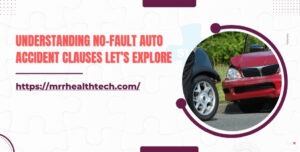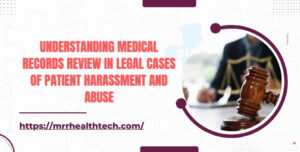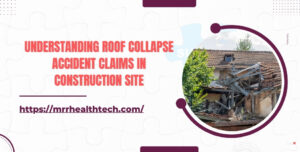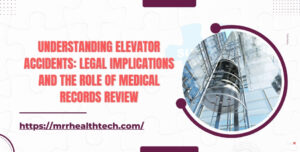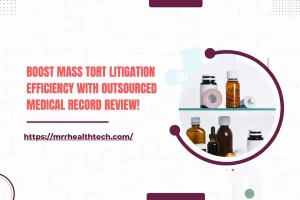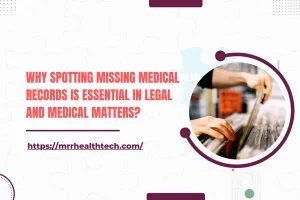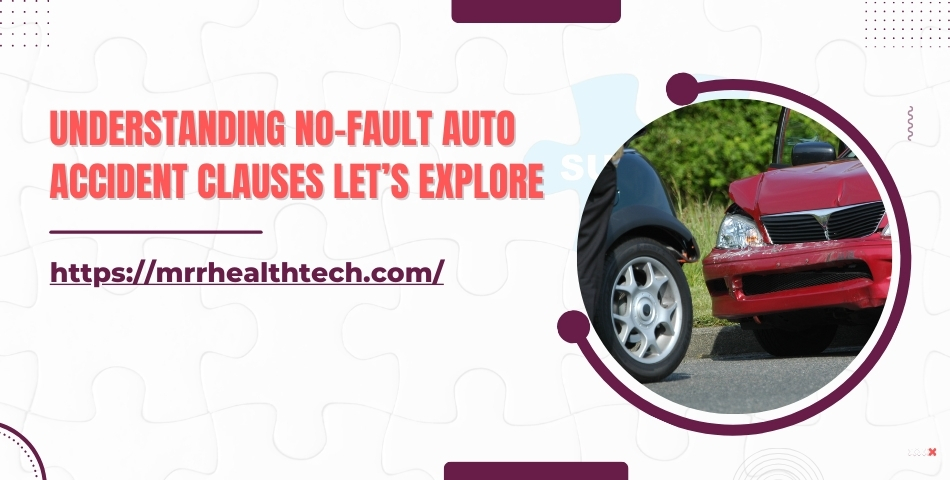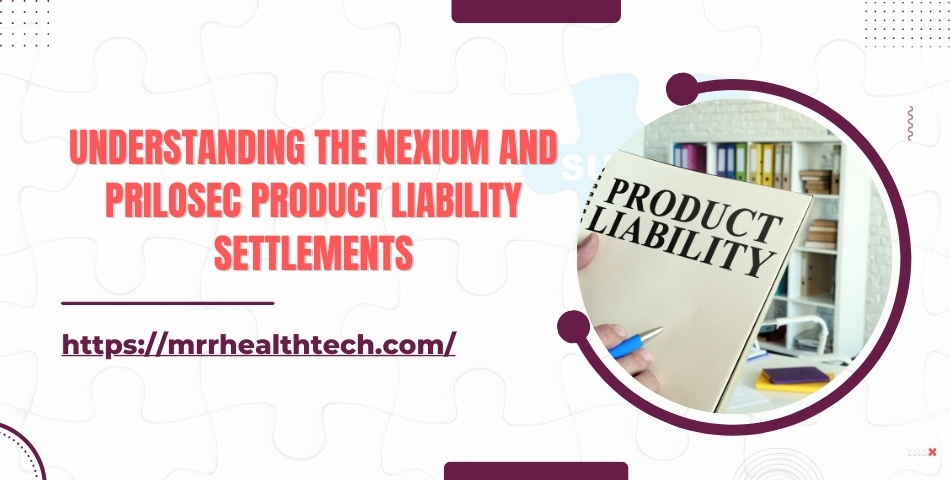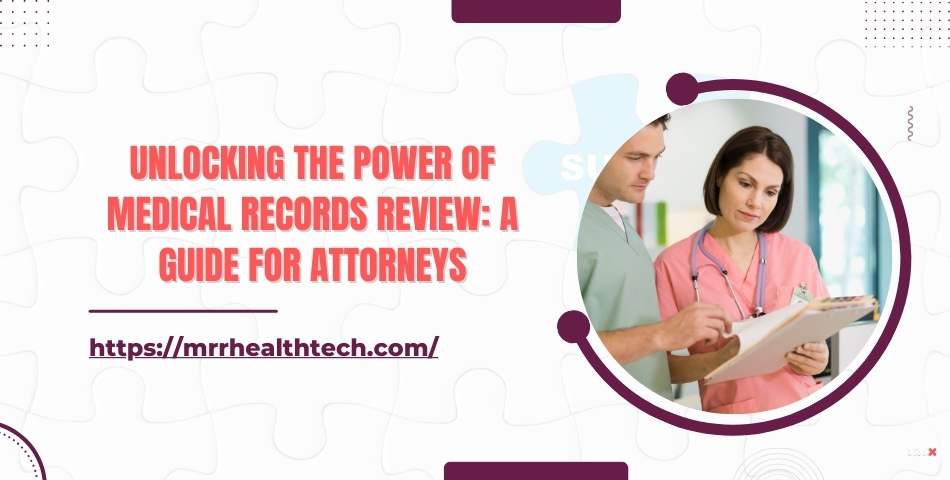
Introduction
Introduction Though they may represent only a fraction of a total case, medical summaries in personal injury, workers’ compensation and medical malpractice must be both exacting of detail and brief in narrative. In a very real sense, as lawyers work on the undertones of these cases, it becomes a case of medical records review and relevance. This article addresses the power
of medical records review and its purpose as well as its efficacy in the outcomes of the cases undertaken by lawyers in America.
Understanding Medical Records Review
What is Medical Records Review?
Medical records review refers to an orderly and structured examination of a patient’s history, treatment and other related records. It is relevant to solicitors in a case whereby there are lots of medical factors, claims are to be analyzed and court action is to be instigated.
Why is Medical Records Review Important for Attorneys?
- Facilitates Case Preparation: It is important that lawyers prepare the case on the medical facts and the only way to appreciate the facts is to pay special attention to the entire case.
- Establishing Medical Issues: Medical records can have another important aspect as they can show how severance, treatment and other complications may be faced in the future.
- Assisting Legal Arguments: Clear and well composed medical summaries can help in court as great tools which support claims and help in countering opposing claims.
The Process of Medical Records Review
Step 1: Collection of Medical Records
The initial concerned gathering all relevant medical records, such as those kept by hospitals, clinics and other specialists. This may include:
- Emergency Room Records
- Physician Notes
- Diagnostic Imaging Reports
- Treatment Plans
Step 2: Analysis of Medical Records
Once collected, the records are meticulously analyzed to extract pertinent information. This includes:
- Orders of Events: Attempting to explain the time line of occurrences and which procedures were done first.
- Medical Words: Knowing some medical words to be able to interpret properly.
- Search and selection of Significant Data: Selection of data that ought to relate to the case.
Step 3: Creating a Concise Medical Summary
The final step is to compile the findings into a concise medical summary. This document should include:
- Patient History: The primordial points chronicling the previous medical history of the person concerned.
- Injury Details: Explanation on how the injuries were sustained and the types of treatment handled.
- Medical Tests and Results: Views and opinions from doctors, where necessary.
Benefits of Medical Records Review for Attorneys
Enhanced Case strategy
The same thing happens when an attorney is provided with a properly developed medical report which helps the client to better strategize the case. By having an understanding of the medical specifics, the attorneys are in a position to know what bumps are likely to occur and how they can respond.
Improved Communication with Clients
Medical summaries which are organized in a unified manner enhance communication between the attorney and the clients by enabling the aggrieved party to appreciate the medical issues in the case and not get overboard with the expectations.
Increased Chances of Settlement
It has been observed that cases which have clear, consistent and precise medical particulars do not proceed to trial as most issues are resolved before that stage and hence time and effort is conserved for the legal practitioners and their clients.
Common Challenges in Medical Records Review
Volume of Records
An attorney’s workload can also be substantially burdened due to the fact that there are quite a number of medical records detailed for a certain person. Arrangement and sorting of relevant information is vital to overcoming this issue.
Understanding Medical Terminology
Another difficulty experienced by attorneys is characterized by the presence of highly specialized and intricate medical terms that are likely to be unfamiliar to legal practitioners. Thus, the need to liaise with medical professionals or record reviewing staff is in crying demand.
Time Constraints
Another common issue that is often raised in such cases is time. The legal course or litigation in most cases does not allow for bluntness and therefore meticulous but rapid review is needed to reach deadlines and court readiness.
Case Studies
Case Study 1: Personal Injury Claim
Overview of the Case: A client suffered severe injuries in a car accident caused by a negligent driver.
Challenges: The opposing counsel disputed the extent of the injuries, claiming they were exaggerated.
Solutions: A detailed medical records review revealed consistent documentation of the injuries and treatments over time. The medical summary highlighted key findings from specialists that supported the client’s claims.
Case Study 2: Workers’ Compensation Claim
Overview of the Case: Due to workplace accident in which the employee was operating some machine, the employee placed a claim for workers compensation.
Challenges: The employer challenged this claim and accused the employees that these injuries were pre-existing and thus not caused by the work environment.
Solutions: A detailed analysis of the medical history suggested further investigations, which led to formulation of the chronology of the injury occurrence during the course of employment, further attempts to discredit opinions of medical practitioner, that the injuries of the workers were as a result of one of the incidents were indeed confirmed. The medical summary also included specialist opinions that supported the notion that workplace surroundings contributed towards the industrial injuries sustained.
Conclusion
It can be said, without uncertainty, that the review of medical records is an important skill for attorneys involved in the cases with medical aspects. If lawyers comprehended medical records and charters text and carried out analysis of such documents in detail, they would raise their litigation strategies, improve client communication and increase chances for favorable resolutions of their cases. The trends of the ethical environment dictate that the attorneys who aim at being at the top in this profession will need to keep track of changes brought about by the current trends in most practices of law in the present day society.


